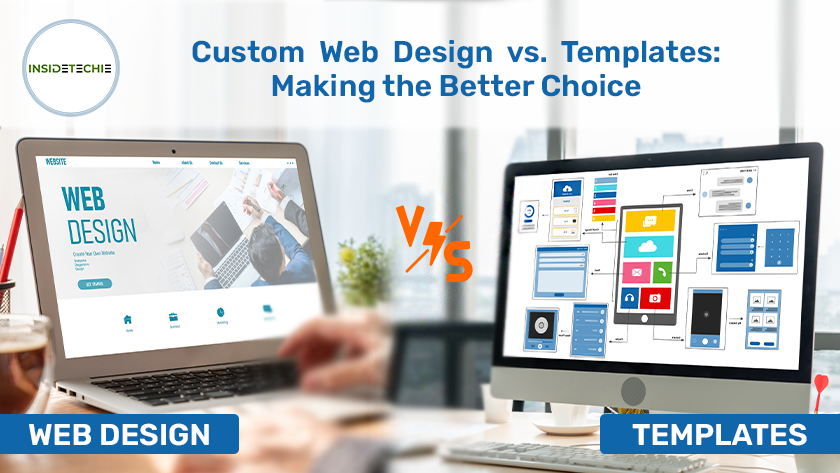In the digital age, establishing an online presence is vital for businesses and individuals alike. When it comes to creating a website, one of the first decisions to make is whether to opt for custom web design or use pre-made templates. Both options have their pros and cons, but understanding the differences can help you make an informed decision that aligns with your goals and needs.
Custom Web Design: Tailored to Perfection
Custom web design involves creating a website from scratch, tailored to meet the specific requirements and objectives of the client. Here are some key advantages to choosing custom web design:
Unique Brand Identity:
One of the most significant benefits of custom web design is the ability to create a unique brand identity. With custom design, every aspect of the website, including layout, color scheme, typography, and imagery, can be customized to reflect the brand’s personality and values.
Tailored Functionality:
Custom-designed websites can be built with specific functionalities and features tailored to the needs of the business or target audience. Whether it’s integrating third-party tools, implementing e-commerce functionality, or developing custom applications, the possibilities are endless with custom web design.
Scalability and Flexibility:
Custom-designed websites are inherently more scalable and flexible than templates. As businesses grow and evolve, custom websites can easily accommodate changes and updates without compromising performance or user experience.
SEO Optimization:
Custom web design allows for greater control over search engine optimization (SEO) strategies. From optimizing site structure and URL hierarchy to implementing schema markup and meta tags, custom-designed websites are inherently more SEO-friendly and can help improve search engine rankings.
Long-Term Cost Savings:
While custom web design may require a higher upfront investment compared to templates, it often leads to long-term cost savings. With a custom-designed website, there’s no need to worry about ongoing subscription fees or limitations imposed by template providers.
Template: Convenience at a Cost
On the other hand, templates offer a quick and cost-effective solution for building a website. Here are some considerations to keep in mind when choosing templates:
Limited Customization:
Templates offer limited customization options compared to custom web design. While some templates allow for minor modifications in terms of colors and layout, they often lack the flexibility to create a truly unique and tailored website.
Lack of Brand Identity:
Using templates that are shared among multiple users can result in a website that lacks uniqueness and fails to differentiate itself from competitors. Establishing a strong brand identity becomes difficult in such cases.
Risk of Overloading:
Templates often include unnecessary code and features, which can overload the website and slow down its performance. This may lead to longer loading times and a less optimal user experience, particularly on mobile devices.
Limited Support and Updates:
Template providers may offer limited support and updates, leaving users to troubleshoot issues on their own. Additionally, templates may not always be compatible with the latest web technologies and standards, leading to compatibility issues and security vulnerabilities.
Making the Right Choice
Ultimately, the decision between custom web design and templates depends on your specific needs, budget, and long-term goals. While templates offer convenience and affordability, custom web design provides unparalleled flexibility, scalability, and brand identity. By carefully weighing the pros and cons of each option, you can make the best choice for your website and set yourself up for success in the digital world.

